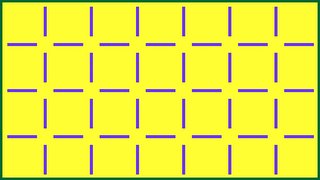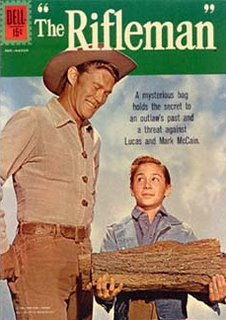• "The British government has learned that Saddam Hussein recently sought significant quantities of uranium from Africa."
-- President George W. Bush, January 28, 2003, State of the Union address.
• Cakewalk In IraqBy Ken Adelman
Washington
Post, Wednesday, February 13, 2002; Page A27
• "There are many dangers in the world, the threat from Iraq stands alone because it gathers the most serious dangers of our age in one place. Iraq could decide on any given day to provide a biological or chemical weapon to a terrorist group or individual terrorists."
--Bush, October 7, 2002
• "It is unknowable how long that conflict will last. It could last six days, six weeks.
I doubt six months." --Defense Secretary Donald Rumsfeld, February 7, 2003 to U.S. troops in Aviano, Italy
• "The people of the United States and our friends and allies will not live at the mercy of an outlaw regime that threatens the peace with weapons of mass murder."
--Bush, March 19, 2003
• "The Iraqi people understand what this crisis is about. Like the people of France in the 1940s,
they view us as their hoped-for liberator."--Deputy Defense Secretary Paul Wolfowitz, March 11, 2003
• "I think things have gotten so bad inside Iraq, from the standpoint of the Iraqi people, my belief is
we will, in fact, be greeted as liberators. . . . I think it will go relatively quickly...weeks rather than months."
--Vice President Dick Cheney, March 16, 2003, on
Meet the Press• Saddam May Have Been In Compound During Missile Strike WASHINGTON (AP) March 20, 2003 — Iraq's forces appeared cut off from their leadership after a U.S. attack on a Baghdad compound that intelligence officials believe struck while Saddam Hussein and possibly his sons were still inside, U.S. officials said Thursday.
The officials, who spoke on condition of anonymity, said there was no definitive word whether Saddam was caught in the pre-dawn attack, or whether he was alive or dead. But officials said they believed medical attention was summoned to the compound after the attack.
• "There's a lot of money to pay for this that doesn't have to be US taxpayer money, and it starts with the assets of the Iraqi people," he said. "On a rough recollection, the oil revenues of that country could bring between $50bn and $100bn over the course of the next two or three years."
--Wolfowitz, March 27, 2003 to House Appropriations committee
• "When it comes to reconstruction, before we turn to the American taxpayer, we will turn first to the resources of the Iraqi government and the international community."
--Rumsfeld, March 27, 2003
• MR. STEPHANOPOULOS: Finally, weapons of mass destruction. Key goal of the military campaign is finding those weapons of mass destruction. None have been found yet. There was a raid on the Answar Al-Islam Camp up in the north last night. A lot of people expected to find ricin there. None was found. How big of a problem is that? And is it curious to you that given how much control U.S. and coalition forces now have in the country, they haven't found any weapons of mass destruction?
SEC. RUMSFELD: Not at all. If you think -- let me take that, both pieces -- the area in the south and the west and the north that coalition forces control is substantial. It happens not to be the area where weapons of mass destruction were dispersed. We know where they are.
They're in the area around Tikrit and Baghdad and east, west, south and north somewhat. This Week with George Stephanopoulos, March 30, 2003
• She Was Fighting To The Death"Lynch, a 19-year-old supply clerk, continued firing at the Iraqis even after she sustained multiple gunshot wounds and watched several other soldiers in her unit die around her in fighting March 23, one official said. The ambush took place after a 507th convoy, supporting the advancing 3rd Infantry Division, took a wrong turn near the southern city of Nasiriyah.
'She was fighting to the death,' the official said. 'She did not want to be taken alive.'
Lynch was also stabbed when Iraqi forces closed in on her position, the official said, noting that initial intelligence reports indicated that she had been stabbed to death…
--Washington
Post, April 3, 2003
• "Jessica was being tortured. That was the urgent word from an Iraqi man who alerted American troops where to find Pfc. Jessica Lynch - and her injuries seem to bear out the allegation.... Her broken bones are a telltale sign of torture, said Amy Waters Yarsinske, a former Navy intelligence officer and an expert on POW and MIA treatment. 'It's awfully hard to break both legs and an arm in a truck accident,' Yarsinske said.
--New York
Post, April 3, 2003
• Saddam Statue Toppled In Central BaghdadWednesday, April 9, 2003 Posted: 12:45 PM EDT (1645 GMT)
Crowds cheer as a statue of Saddam Hussein falls.
BAGHDAD, Iraq (CNN) -- Iraqis danced and waved the country's pre-1991 flag in central Baghdad's Firdos Square after a U.S. Marine armored recovery vehicle helped topple the square's huge statue of Iraqi President Saddam Hussein.
• Army Report Confirms Psy-ops Staged Saddam Statue Toppling by Jon Elmer, July 3, 2004 - An internal Army study of the war in Iraq has confirmed that the infamous toppling of the statue of Saddam Hussein in Firdos Square in central Baghdad on April 9, 2003 was stage-managed by American troops and not a spontaneous reaction by Iraqis. According to the study, a Marine colonel first decided to topple the statue, and an Army psychological operations unit turned the event into a propaganda moment.
At one point during the stunt Marines draped the statue of Saddam Hussein with an American flag. When the crowd reacted negatively to that gesture, the US flag was replaced with a pre-1990 Iraqi flag, missing the words "God is Great," by a sergeant from the psychological operations unit. The Marines brought in cheering Iraqi children in order to make the scene appear authentic, the study said.
• "...we have won a great victory in Iraq, and an even greater one in the world. The next time we say to someone, "Don't make us come over there", they won't. America's already-great diplomatic power has now been massively enhanced, through a clear demonstration that any explicit or implicit threats of military operations we might make are not empty."
Steven DenBeste, April 11, 2003
• Jubilant Rumsfeld Takes A Swipe At CriticsDavid Rennie, The Telegraph, April 29, 2003
The US defence secretary, Donald Rumsfeld, yesterday allowed himself the luxury of mocking his many critics who predicted a long, bloody war in Iraq.
"There were a lot of hand-wringers around, weren't there?" he told cheering troops at the coalition military headquarters in Qatar.
Though the war has not been declared officially ended, a beaming Mr Rumsfeld congratulated coalition commanders and predicted that future historians would regard the Iraqi action as a model conflict.
"When the dust has settled in Iraq, military historians will study this war," he said.
• Commander in Chief Lands On USS Lincoln Friday, May 2, 2003 Posted: 7:47 AM EDT (1147 GMT)
ABOARD USS ABRAHAM LINCOLN (CNN) -- President Bush made a landing aboard the USS Abraham Lincoln Thursday, arriving in the co-pilot's seat of a Navy S-3B Viking after making two fly-bys of the carrier.
...
Bush was taken in by plane because the Lincoln was too far off the California coast for a helicopter to bring him aboard.• Explanation for Bush's Carrier Landing AlteredBy Dana Milbank
Washington Post Staff Writer
Wednesday, May 7, 2003; Page A20
President Bush chose to make a jet landing on an aircraft carrier last week even after he was told he could easily reach the ship by helicopter, the White House said yesterday, changing the explanation it gave for Bush's "Top Gun" style event....
White House officials had said, both before and after Bush's landing in a Navy S-3B Viking jet, that he took the plane solely to avoid inconveniencing the sailors, who were returning home after a deployment of nearly 10 months. The officials said that Bush decided not to wait until the ship was in helicopter range to avoid delaying the troops' homecoming.
But instead of the carrier being hundreds of miles offshore, as aides had said it would be,
the Lincoln was only about 30 miles from the coast when Bush made his "tail-hook" landing, in which the jet was stopped by cables on deck.
Navy officers slowed and turned the ship when land became visible. • "Today, on the United Nations International Day in Support of Victims of Torture,
the United States declares its strong solidarity with torture victims across the world. Torture anywhere is an affront to human dignity everywhere. We are committed to building a world where human rights are respected and protected by the rule of law.
"Freedom from torture is an inalienable human right. The Convention Against Torture and Other Cruel, Inhuman or Degrading Treatment, ratified by the United States and more than 130 other countries since 1984, forbids governments from deliberately inflicting severe physical or mental pain or suffering on those within their custody or control. Yet torture continues to be practiced around the world by rogue regimes whose cruel methods match their determination to crush the human spirit. Beating, burning, rape, and electric shock are some of the grisly tools such regimes use to terrorize their own citizens. These despicable crimes cannot be tolerated by a world committed to justice. "
--Bush, June 26, 2003 Statement by the President, United Nations International Day in Support of Victims of Torture
• "We've found a couple of semi-trailers at this point which we believe were in fact part of [a WMD] program," Cheney said.
"I would deem that conclusive evidence, if you will, that he did in fact have programs for weapons of mass destruction." --Cheney, January 23, 2004
• "Beautification Plan for Baghdad Ready to Begin."--Office of Strategic Communications press release, March, 2004
• "We ended the threat from Saddam Hussein's weapons of mass destruction."
--Bush, July 17, 2003
• "I think they're in the last throes, if you will, of the insurgency."
--Cheney, June 20, 2005
• "Never have so many been so wrong about so much."
--Rumsfeld, April 29, 2003
• "I don't feel in a bubble."
--President George W. Bush, December 12, 2005
1000 days after the German invasion of the USSR, the Soviets were staging the Byelorussian campaign, which would throw the Germans back across their borders. The Lenningrad-Novgorod offensive, which had lifted the seige of Lenningrad after 900 days, was on its way to annihilating the German forces in the Baltic.
1000 days after Pearl Harbor, Allied forces in the West were pushing into Belgium, had broken the Gothic Line in Northern Italy and were moving toward Bologna, and had landed in southern France to link up with the other two forces. In the Pacific, still the "second theatre", US forces had captured Saipan, Tinian, and Guam in the Marianas, taken Tarawa, at a terrible cost, Kwajalein Island and the rest of the Marshalls, and Allied forces had recaptured New Guinea. Intense carrier bombings and submarine activity were preparing the way for the invasion of Leyte.
1000 days after the invasion of Iraq, we've produced a 38-page plan.










